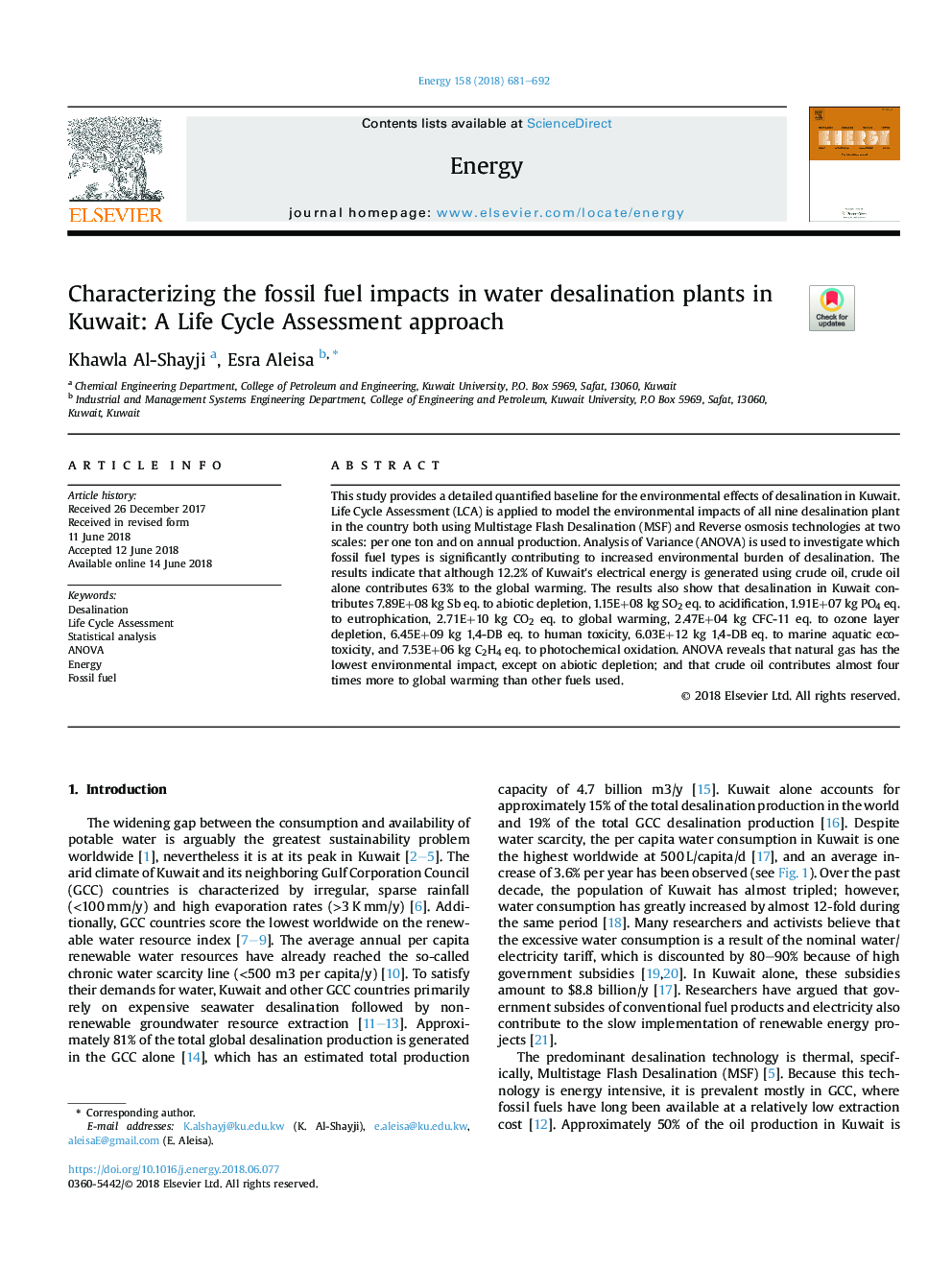| کد مقاله | کد نشریه | سال انتشار | مقاله انگلیسی | نسخه تمام متن |
|---|---|---|---|---|
| 8071175 | 1521392 | 2018 | 12 صفحه PDF | دانلود رایگان |
عنوان انگلیسی مقاله ISI
Characterizing the fossil fuel impacts in water desalination plants in Kuwait: A Life Cycle Assessment approach
ترجمه فارسی عنوان
مشخص کردن اثرات سوخت فسیلی در گیاهان آب شیرین کن در کویت: یک روش ارزیابی چرخه زندگی
دانلود مقاله + سفارش ترجمه
دانلود مقاله ISI انگلیسی
رایگان برای ایرانیان
کلمات کلیدی
موضوعات مرتبط
مهندسی و علوم پایه
مهندسی انرژی
انرژی (عمومی)
چکیده انگلیسی
This study provides a detailed quantified baseline for the environmental effects of desalination in Kuwait. Life Cycle Assessment (LCA) is applied to model the environmental impacts of all nine desalination plant in the country both using Multistage Flash Desalination (MSF) and Reverse osmosis technologies at two scales: per one ton and on annual production. Analysis of Variance (ANOVA) is used to investigate which fossil fuel types is significantly contributing to increased environmental burden of desalination. The results indicate that although 12.2% of Kuwait's electrical energy is generated using crude oil, crude oil alone contributes 63% to the global warming. The results also show that desalination in Kuwait contributes 7.89E+08 kg Sb eq. to abiotic depletion, 1.15E+08 kg SO2 eq. to acidification, 1.91E+07 kg PO4 eq. to eutrophication, 2.71E+10 kg CO2 eq. to global warming, 2.47E+04 kg CFC-11 eq. to ozone layer depletion, 6.45E+09 kg 1,4-DB eq. to human toxicity, 6.03E+12 kg 1,4-DB eq. to marine aquatic ecotoxicity, and 7.53E+06 kg C2H4 eq. to photochemical oxidation. ANOVA reveals that natural gas has the lowest environmental impact, except on abiotic depletion; and that crude oil contributes almost four times more to global warming than other fuels used.
ناشر
Database: Elsevier - ScienceDirect (ساینس دایرکت)
Journal: Energy - Volume 158, 1 September 2018, Pages 681-692
Journal: Energy - Volume 158, 1 September 2018, Pages 681-692
نویسندگان
Khawla Al-Shayji, Esra Aleisa,
